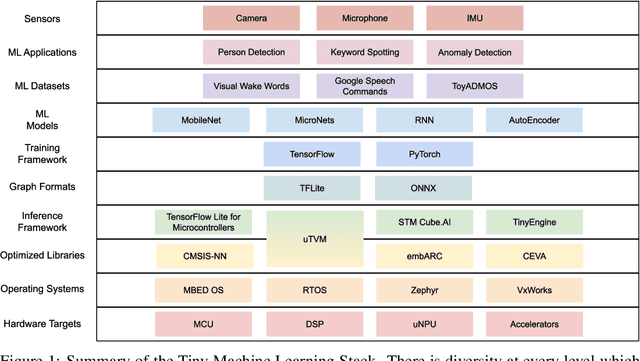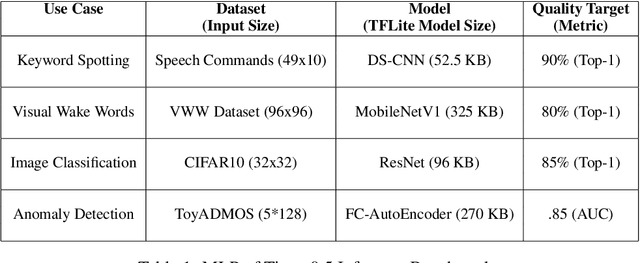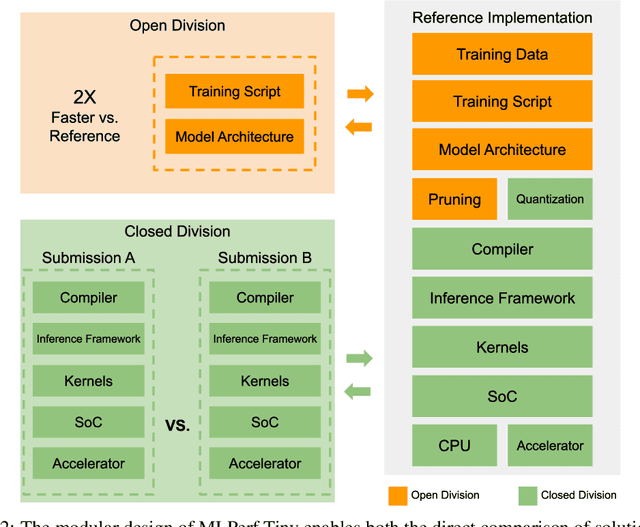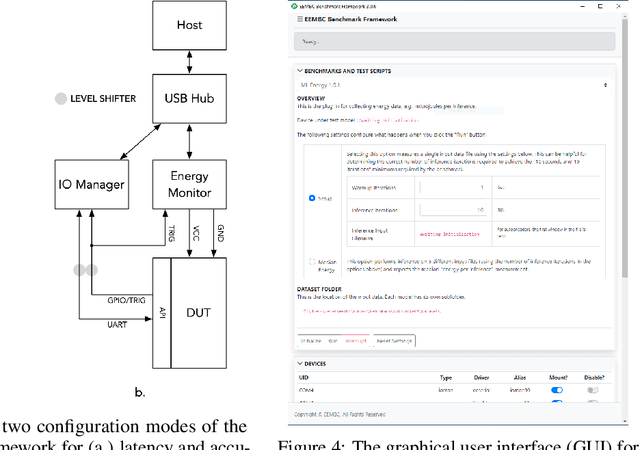Csaba Kiraly
MLPerf Power: Benchmarking the Energy Efficiency of Machine Learning Systems from μWatts to MWatts for Sustainable AI
Oct 15, 2024



Abstract:Rapid adoption of machine learning (ML) technologies has led to a surge in power consumption across diverse systems, from tiny IoT devices to massive datacenter clusters. Benchmarking the energy efficiency of these systems is crucial for optimization, but presents novel challenges due to the variety of hardware platforms, workload characteristics, and system-level interactions. This paper introduces MLPerf Power, a comprehensive benchmarking methodology with capabilities to evaluate the energy efficiency of ML systems at power levels ranging from microwatts to megawatts. Developed by a consortium of industry professionals from more than 20 organizations, MLPerf Power establishes rules and best practices to ensure comparability across diverse architectures. We use representative workloads from the MLPerf benchmark suite to collect 1,841 reproducible measurements from 60 systems across the entire range of ML deployment scales. Our analysis reveals trade-offs between performance, complexity, and energy efficiency across this wide range of systems, providing actionable insights for designing optimized ML solutions from the smallest edge devices to the largest cloud infrastructures. This work emphasizes the importance of energy efficiency as a key metric in the evaluation and comparison of the ML system, laying the foundation for future research in this critical area. We discuss the implications for developing sustainable AI solutions and standardizing energy efficiency benchmarking for ML systems.
MLPerf Tiny Benchmark
Jun 28, 2021



Abstract:Advancements in ultra-low-power tiny machine learning (TinyML) systems promise to unlock an entirely new class of smart applications. However, continued progress is limited by the lack of a widely accepted and easily reproducible benchmark for these systems. To meet this need, we present MLPerf Tiny, the first industry-standard benchmark suite for ultra-low-power tiny machine learning systems. The benchmark suite is the collaborative effort of more than 50 organizations from industry and academia and reflects the needs of the community. MLPerf Tiny measures the accuracy, latency, and energy of machine learning inference to properly evaluate the tradeoffs between systems. Additionally, MLPerf Tiny implements a modular design that enables benchmark submitters to show the benefits of their product, regardless of where it falls on the ML deployment stack, in a fair and reproducible manner. The suite features four benchmarks: keyword spotting, visual wake words, image classification, and anomaly detection.
 Add to Chrome
Add to Chrome Add to Firefox
Add to Firefox Add to Edge
Add to Edge